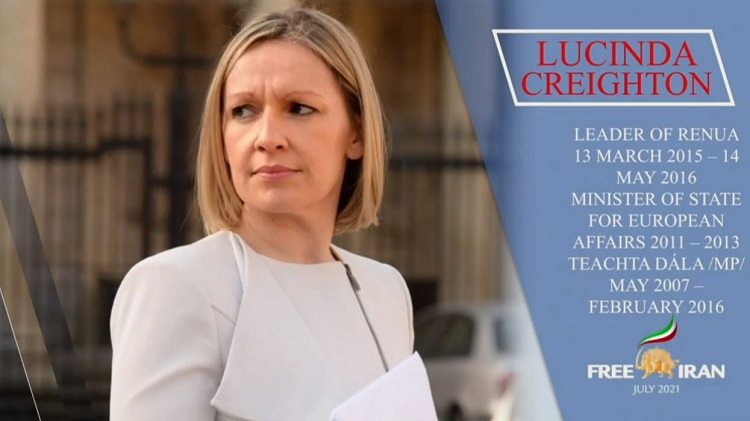July 12, 2021—
Condemnation of the election in Iran
– Let me start by thanking you for the invitation to speak at this very timely and significant event.
– Your work and efforts, including the organisation of this year’s Free Iran World Summit, are crucial as they help draw attention to the many severe human rights violations perpetrated by the Iranian regime.
– Through its aggressive foreign policy, the Islamic Republic of Iran poses a serious threat to the Middle East and the international community in general. Be it through its nuclear program or through its financial and logistical support for various terrorist groups such as Hezbollah or the Houthis, the regime fuels instability in the region.
– On the domestic front, the Iranian regime, which is dominated by ultra-conservative Islamic clergy, has totalitarian control over all sectors of society and is guilty of countless human rights violations.
– Against this background, I was very disappointed to see the result of the recent presidential election, which saw the victory of Ebrahim Raisi.
– For me, the undemocratic process and the election result are a clear sign, were it needed, that the ruling elite in Iran is primarily interested in perpetuating its own power, which happens at the expense of the Iranian population that desperately seeks more freedoms and an end to tyranny.
General context of the election in Iran:
– The regime is currently facing one of the most critical periods since it came to power. The country faces heavy international sanctions, while the economy is weakened and more and more people in Iran express their dissatisfaction with the theocratic regime in place.
– The situation for ordinary Iranians is dire. Since 2018, the country has experienced nationwide uprisings and protests. More than 75% of Iranians are forced to survive on average incomes below the international poverty line.
– If we look over the last twenty years, antidemocratic practices and the persecution of the Iranian people are nothing new. In 2009, massive electoral fraud allowed Mahmoud Ahmadinejad to win a second term. Mass demonstrations by supporters of the reformers, the “green revolution”, were brutally crushed by the leadership.
– The turnout of the Iranian population in the most recent election, which was below 50%, a historically low point, shows that the public are losing faith. The result unmistakably shows a profound alienation between the leadership and large parts of the population.
– The Iranian population wants economic well-being and to live in a country that can maintain a good relationship with other nations. The course of the Iranian government has offered them the exact opposite, as its ideology, its corruption and mismanagement has plunged the country into an existential crisis.
Criticism of the election:
– Of course, free and fair elections have never existed since the foundation of the Islamic Republic, but the recent election saw a gross abuse of the system as Ebrahim Raisi, was designated as the next president.
– All serious candidates had previously been eliminated by the democratically non-legitimised Guardian Council. Similar deplorable tactics were deployed during last year’s parliamentary election.
– Raisi, functions as a guarantor for the regime’s survival. He will help to further transform the Islamic Republic into a totalitarian system in which the hardliners hold all the power.
– Raisi made a name for himself by focusing on anti-corruption and populism.
– But of course if we look at Raisi’s background: he is an old figure of the regime. More than this, he has been intimately involved in the brutal practices of the regime. He was instrumental in the officially denied mass executions of opponents of the regime at the end of the 1980s , as well as in the suppression of the protests in 2009. As head of the judiciary, he was also involved in the persecution of dissidents until very recently.
– As things stand, his election will most likely coincide with an aggravation of human rights abuses, including the little freedoms Iranian’s and especially women had so far.
Repercussion and next steps:
– Therefore, I fully understand and share the various concerns that emerged within the international community after the designation of Raisi. His selection represents a further obstacle to the normalisation of relations with Iran.
– Raisi’s elevation will exacerbate domestic and regional problems since Iran is involved in one way or another throughout the Middle East, in advancing ballistic missile programmes, human rights abuses and supporting and financing extremist and terrorist activity
– Overall, the designation of Raisi has sent a clear signal to the world, which is not a positive one, neither for the Iranian people who struggle for more rights and freedoms, nor for the International community that seeks to normalise its relations with Iran.
